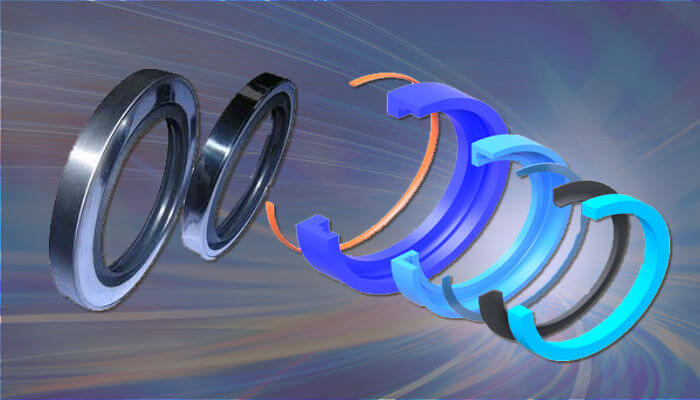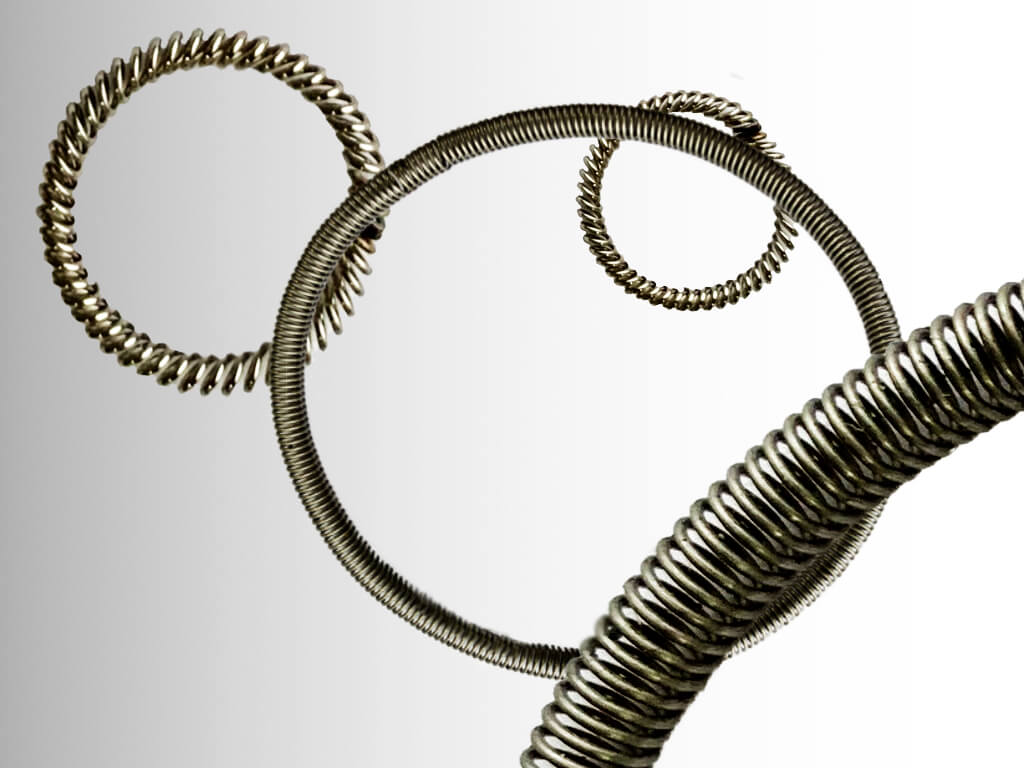Designing polymer seals for dynamic applications can be a challenging task. Polymer seals have proven vital in dynamic applications such as rotary shafts, reciprocating pistons, and oscillating systems. However, dynamic conditions can introduce challenges that are not found in static conditions. These challenges include continuous motion, heat buildup, wear mechanisms, and variable pressures.
This blog post examines three key challenges involved in dynamic sealing: wear, friction, and thermal expansion.
The Role of Polymers in Dynamic Seals
Engineering polymers such as PTFE and PEEK offer several advantages over both traditional metals and elastomeric seals in dynamic systems. Such benefits include outstanding performance even in operating environments that include extreme temperatures and require excellent chemical compatibility and extremely low friction. And engineers can further enhance the most desirable features of these polymers through the use of fillers and blends (e.g., graphite, carbon, bronze, glass, and even PTFE). Polymer seals are also lightweight and ideal for compact systems where space is limited.
Balancing Wear Resistance
One of the most limiting factors in dynamic seal applications is wear. The three most common wear mechanisms involved are adhesion, abrasion, and fatigue.
- Adhesive wear happens when the seal momentarily sticks to the counterface, thus tearing material away from the surface and resulting in material transfer or scoring.
- Abrasive wear occurs when hard (abrasive) particles or rough surfaces cut into the polymer, creating grooves and accelerating material loss.
- Fatigue wear takes place when the seal is subject to repeated cyclic stresses that form micro-cracks, eventually leading to surface flaking or spalling.
Polymers can effectively address wear issues. PTFE effectively combines extremely low dynamic friction and excellent self-lubrication. This combination makes it well-suited for high-wear dynamic applications such as piston rings in gas compressors. Another example is the use of PEEK seals in aerospace actuators, where its high resistance and ability to maintain mechanical strength at high temperatures make it an excellent choice for applications involving cycling under high loads.
One of the most effective ways to further improve the wear resistance of PTFE and PEEK dynamic seals would be the use of filled composites, the use of appropriate surface finishes on countersurfaces, and wise design choices that minimize localized stresses.

Managing Friction
Friction is particularly problematic in dynamic seals, as it leads to heat generation, energy loss, and accelerated degradation. This problem leads to a trade-off between achieving an effective sealing force and maintaining low friction.
PTFE is an excellent example of how low-friction engineering polymers can help achieve this balance. PTFE has the lowest coefficient of friction of any engineering polymer, and is far less than that of metal or elastomers. Its self-lubricating nature keeps friction very low at the shaft-seal interface, which will minimize heat buildup and lost energy. In fact, it can even reduce energy loss during dry running conditions. The strength and modulus of elasticity of PTFE can be modified through the use of fillers and hybrids.
Spring-energized seals, which use a metallic energizer to keep the seal lip in contact with the sealing surface and generate a predictable, consistent load to compensate for problems such as wear, thermal expansion, and pressure changes. As the load is kept within a predictable range, the friction is also kept at consistent levels over a well-distributed sealing force.
Thermal Expansion Considerations
Polymers indeed possess a higher coefficient of thermal expansion when compared to metals and most elastomers. Changes in dimensions can impact clearance, sealing performance, and contact pressure in dynamic sealing applications. In aerospace and automotive applications, for example, there can be an abundance of extreme temperature cycling, which is going to be especially problematic in rotary shaft seal designs.
There are several approaches to minimizing the impact of thermal expansion, starting with customized PTFE or PEEK polymer blends with materials that will lower the coefficient of thermal expansion without compromising wear resistance or friction.
The use of spring-energized seals allows the polymeric sealing lip to remain in contact with the sealing surface despite changes in geometry or alignment, whether they are due to wear, thermal expansion, or thermal contraction in the presence of extreme temperature cycling.
Note that both of these approaches can be further enhanced through predictive modeling of how the seal will deform under thermal stress.
Polymer Seals for Dynamic Applications: Design Best Practices
Here are some straightforward design best practices related to dynamic sealing challenges:
- Always match the seal geometry to motion type (i.e., rotary vs reciprocating).
- Carefully consider the allowable surface roughness and hardness of mating surfaces.
- Respect the PV limit (pressure × velocity) when selecting a polymer.
- Remember the importance of predictive modeling (finite element analysis for thermal and tribological performance).
- Always test under real-world operating conditions before full-scale deployment.
Conclusion
Dynamic sealing requires balancing wear, friction, and thermal expansion, with no single solution that fits all. Fortunately, advances in polymer science and composites make it possible to design seals that meet increasingly demanding requirements. However, engineers must still carefully match polymer formulations, energizers, and geometries to the unique conditions of each application.
If you need a dynamic seal for an application, contact the experts at Advanced EMC. Our engineers are very experienced and highly knowledgeable, able to take you all the way from seal design and material selection to testing.



